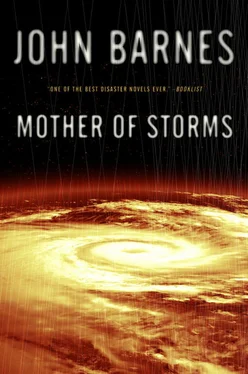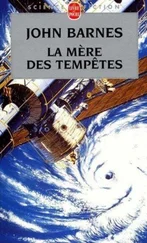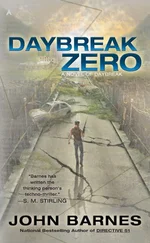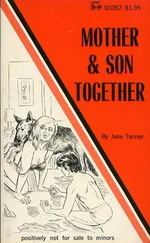“FBI? I didn’t even know they were still functioning. And this sounds like a criminal justice matter—which I didn’t think we’d have anyone working on right now.”
“There are eight of them, and so far they’re functioning. They probably wouldn’t be doing criminal justice, except that Carla dropped them a long roster of witnesses and evidence for investigating the assassinations. Abdulkashim’s Siberians again, by the way—Carla’s throwing about half of the gang to us and the other half to their own revolutionary government.”
Hardshaw gives a low, animal grunt of satisfaction; the part of her that has never gotten over being a prosecutor says, “Just make sure that the most guilty ones go to the revolutionary government—so far, they have no Bill of Rights over there, and they can deal with it better than we can.”
“Got it, boss.” The young woman grins back at her. “So what should I tell Ms. Jameson? She’s calling you, by the way, from her car, in the parking lot of the U of the Az, in Tucson.”
U of the Az . Hardshaw mentally drafts a note to all staff that henceforth White House staff will distinguish itself from the rest of its generation by not pronouncing postal abbreviations, on penalty of being put in charge of liaison to the governor of the Wy for the next six years.
But time enough for that later—in fact, right now, with so much still not working and so much information about what is working not yet collected and collated, she does have time on her hands, and it never hurts to have good relations with the press, whoever they might be.
“Sure, get me Ms. Jameson—just let her know that we’ll have to stop when whatever it is that’s going to happen at Monte Alban happens.”
It’s less than a minute later when the two of them are linked up, and by that time Hardshaw knows what she has to say. “Well, obviously, we’ve had the case dropped into our lap, and we’re going to pursue justice by whatever means we can. That will mean some arrests and prosecutions in the United States, seeking extradition in some other cases, and cooperating with Siberian and other law enforcement authorities.”
“Does that include working with the United Nations?”
“If there is one. That organization’s continued existence is not yet certain, though I have no doubt many of its agencies will continue, just as several of the old League of Nations entities were passed on to the UN.”
Jameson nods, smiling at the remark; she and Hardshaw both know that if the UN proves unexpectedly resilient, it will cause no trouble, but if, as seems more likely, the UN is really gone, then it makes no commitments and expresses no regrets.
Hardshaw uses that instant to assess Jameson and decides that she likes her—according to the file she’s an Afropean, so her nationalist credentials are impeccable, and the polite but very direct questions are a pleasure to answer—if there are any traps in them, they’re obvious ones.
Then Jameson smiles, an engaging self-deprecating smile that gives Hardshaw the feeling that she’s being taken into a confidence, made a best buddy of. Hardshaw recognizes that smile—it’s the same one that one of her better investigating detectives used to use when he was working hard for a confession. For that matter it’s the same one that—back when TV news was the big news—used to show up on the faces of network political reporters. It’s a good thing, Hardshaw thinks, that she’s a generation older than Berlina, and has dealt with exactly that kind of reporter in her younger days, because nowadays about the only place that you see it is on the XV channels that feature Plucky Girl Reporters.
“And if I may, Ms. President, as long as I have you here, do you have any idea what is going on at Monte Alban, or why it has suddenly become so important? So far all I can get from anyone who works for you is that they are watching the situation closely, and that’s not exactly news since everyone is watching it closely, given that we’re all experiencing through Synthi Venture.”
“She wants to be known by her real name, Mary Ann Waterhouse,” Hardshaw says. “Very pleasant and intelligent person, by the way.” It’s a classic evasion step; let’s see if Jameson really can do this big-deal network reporter shtick.
“So can we say that you’ve had some private contact with her?” Jameson says. “Can I quote that—and may I ask if you were able to find out what’s going to happen?”
Yessir, Hardshaw thinks, Jameson can do it. She scrawls a tiny note to herself—put Jameson on the special list of reporters the President talks to unofficially; here’s a good person to leak to when she needs one.
“Those are several different questions. Yes, I’ve talked with Mary Ann Waterhouse—she and her companion, Jesse Callare, are just fine. And they don’t know what’s planned, either. Louie and Carla are doing their own thing with it. Mary Ann happens to be useful because through her Passionet link she’s a way for Carla and Louie to send us whatever it is that they want to send us. But Jesse and Mary Ann aren’t in charge of it—they’re more passengers than anything else.”
Jameson bites her lip. “I know I’m doing my first Presidential interview, because I just thought of a question I’m a little afraid to ask.”
Hardshaw grins at her, a big, toothy beaming grin that looks superficially friendly and that Hardshaw has cultivated for a long time—because it can also look as if she’s baring her teeth and getting ready to spring. Hardshaw remembers what her first supervisor at the County Prosecutor’s office told her: “When you’re in politics, reporters should be your spaniels, so you pet them on the head, and you throw things out for them to chase, and you tell them what good doggies they are—but you’ve got to hit them with the newspaper every now and then, or they’ll pee on your carpet.” It’s about time to make sure this reporter feels a bit threatened. “Well, if I don’t like the question, I can always kill the interview.”
“God knows, I’m aware of that, Ms. President, but if I don’t try I’ll kick myself tomorrow.” Jameson’s grin back is just as predatory. My, yes, there is going to be a third-term campaign, and here is someone Hardshaw is going to talk to. Jameson lets it hang just long enough, and then says, “You said Jesse and Mary Ann are more passengers than anything else? But isn’t that—well, what all of us are, and most especially you?”
It’s a great question. Now all Hardshaw needs is a great answer. She does the usual stall—sits back, takes a deep breath, looks as thoughtful as she can. Finally she resorts to the oldest tactic of all, telling the truth. “I hadn’t thought of it that way, but you’re right. And it’s been getting to be that way for a long time. In some way that we don’t really understand, for decades the old system where ‘I say to a man go, and he goeth’ has been collapsing, so that nowadays we all talk and act, talk and act, in ceaseless communication, with nobody at the top of the ladder, and what gets done is what gets done. And now we’ve got a whole new world to build—not quite starting from scratch, but near enough—and there are half a dozen things we’ve never had before, starting with Louie and Carla themselves, out there to be gotten used to. I guess what we do, all of us, most especially including me, is stay loose and do what seems right wherever our reach extends—and recognize that that is not very far.”
There’s a ping and a small inset screen appears in the larger screen where she’s been talking to Jameson. It’s the same young woman. “Boss, Mary Ann Waterhouse is back online and they’re in the final approach up the hill to Monte Alban. Things should be starting, whatever ‘things’ are, in a few minutes.”
Читать дальше












